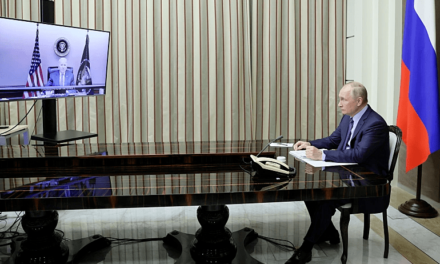Photo/AFP
Iraqi activists and human rights activists fear that religious political parties and blocs will seek to amend the Personal Status Law by force in the country, by transforming it from a civil law into a semi-religious law controlled by the Shiite and Sunni endowments.
On Sunday, the Iraqi parliament conducted the first reading of the proposed law amending Personal Status Law No. 188 issued in 1959.
The amendment proposal was submitted by a member of the parliamentary legal committee, Raed Al-Maliki, who said in a statement on July 23 that “the proposed law gives Iraqis the freedom to choose to apply the provisions of the Personal Status Law in force (Law 188 of 1959) or to choose the provisions of the (Sharia Code in Personal Status Matters) that will be developed and approved by the House of Representatives.”
Al-Maliki pointed out that “the provisions of the Sharia Code will include two chapters, one for Jaafari jurisprudence and the other for Sunni jurisprudence, which will be established by the Scientific Council in the Shiite and Sunni endowments’ Diwans in coordination with the State Council and in accordance with the well-known provisions of the two jurisprudences.”
The proposed amendment includes the Shiite and Sunni endowments in the issues of marriage, separation, child custody, and women’s rights to inheritance and alimony.
Fragmentation of Society
Human rights activist Amira Al-Aboudi says that the proposed amendment “will greatly contribute to the fragmentation of Iraqi society, distancing it from the civil front, and weakening the law in the country.”
She explained to “Irfaasawtak website” that “the proposed amendments will double the number of divorce cases in Iraq and contribute to the dispersion of families, because they cause the loss of a woman’s right to alimony and inheritance, thus weakening her social identity.”
“The marriage process takes place outside the judicial institution, and will be through the paper of a sheikh or a master according to the sect, which will cause many problems in the future, the most important of which is the consolidation of sectarianism in the family and society,” Al-Aboudi continues.
The proposed amendment stipulates that separation, according to Shiite and Sunni jurisprudence, should be based on the choice of the spouses, while the current law assigns separation to the civil judiciary.
Custody Right
The second amendment, which is considered the most controversial, is related to Article (57) of the current law on child custody after the parents’ divorce, as it deprives the mother of custody of her child in the event of her marriage after the divorce, provided that custody is transferred to the father when the child reaches the age of seven.
As for the text currently in force, it confirms the mother’s right to custody of her child even if she marries after the divorce, and after the child reaches the age of fifteen, he/she has the right to choose either to stay with the mother or live with the father.
For her part, lawyer Shireen Zangana says, “There are great concerns that the proposed amendment proposes that custody be for the father after the child reaches the age of seven, provided that the mother does not marry another person, and this is considered a deprivation of the mother of the right to custody immediately after her marriage. In contrast, a father can get custody of his children even if he decides to get married again.”
She considers that the current law in force in Iraq is “fair to women,” unlike the proposed amendment.
In a press conference held by MP Raed Al-Maliki in the Iraqi Council of Representatives, he explained that the amendment proposal submitted by him “fulfills the demands of religious authorities who have been demanding for decades that the provisions of positive law should not be imposed on Muslims in Iraq and that the person responsible should be granted the right to choose the provisions of his religion and sect in his personal status.”
According to “Irfaasawtak website”‘s follow-up and observations of the process of submitting the proposal and including it on the agenda in the Council of Representatives and the ongoing dialogues about it between the political parties, the proposal enjoys the support of the Coordination Framework parties, which consists of the most prominent Shiite parties and factions and represents the main component forming the government.
In May, Baghdad witnessed several demonstrations by men during which they demanded amending the Personal Status Law, especially Article (57), and these demonstrations coincided with campaigns launched by religious channels to mobilize popular support in order to amend the current law, under the pretext that “a number of its articles violate Islamic law.”
The proposed amendment was based in its basic idea on Article (2) of the Constitution in its first paragraph, which stipulates that it is not permissible to legislate a law that contradicts the constants of the provisions of Islamic Sharia, as well as on Article (41), which gave Iraqis the freedom to organize their personal status, according to their sects, religions and beliefs.
In this context, constitutional law expert Wael Al-Bayati explains that the amendment “was based on one paragraph of the paragraphs included in Article (2), Section One of the Constitution, and ignored what was related to the issue of the inadmissibility of legislation being in conflict with the principles of democracy or the rights and freedoms included in the Constitution.”
He added to “Irfaasawtak website” that the legal wording included in the proposal “contradicts the principles and foundations of drafting, which require precision in drafting and not using vague terms or terms that can be interpreted in more than one text.”
Al-Bayati explains: “Article (1) of the proposed amendment (paragraph B) obligated the courts to adopt all personal status matters according to the application of the provisions of the code that will be issued later by the Shiite and Sunni endowments. That is, the proposal in this article and this paragraph, which is no longer than one line, canceled all the legal provisions contained in the Personal Status Law regarding the issue of engagement, divorce, guardianship, trusteeship, inheritance, and custody, considering that they will be applied according to what will be stated in the code, which is based on Sharia provisions.”





